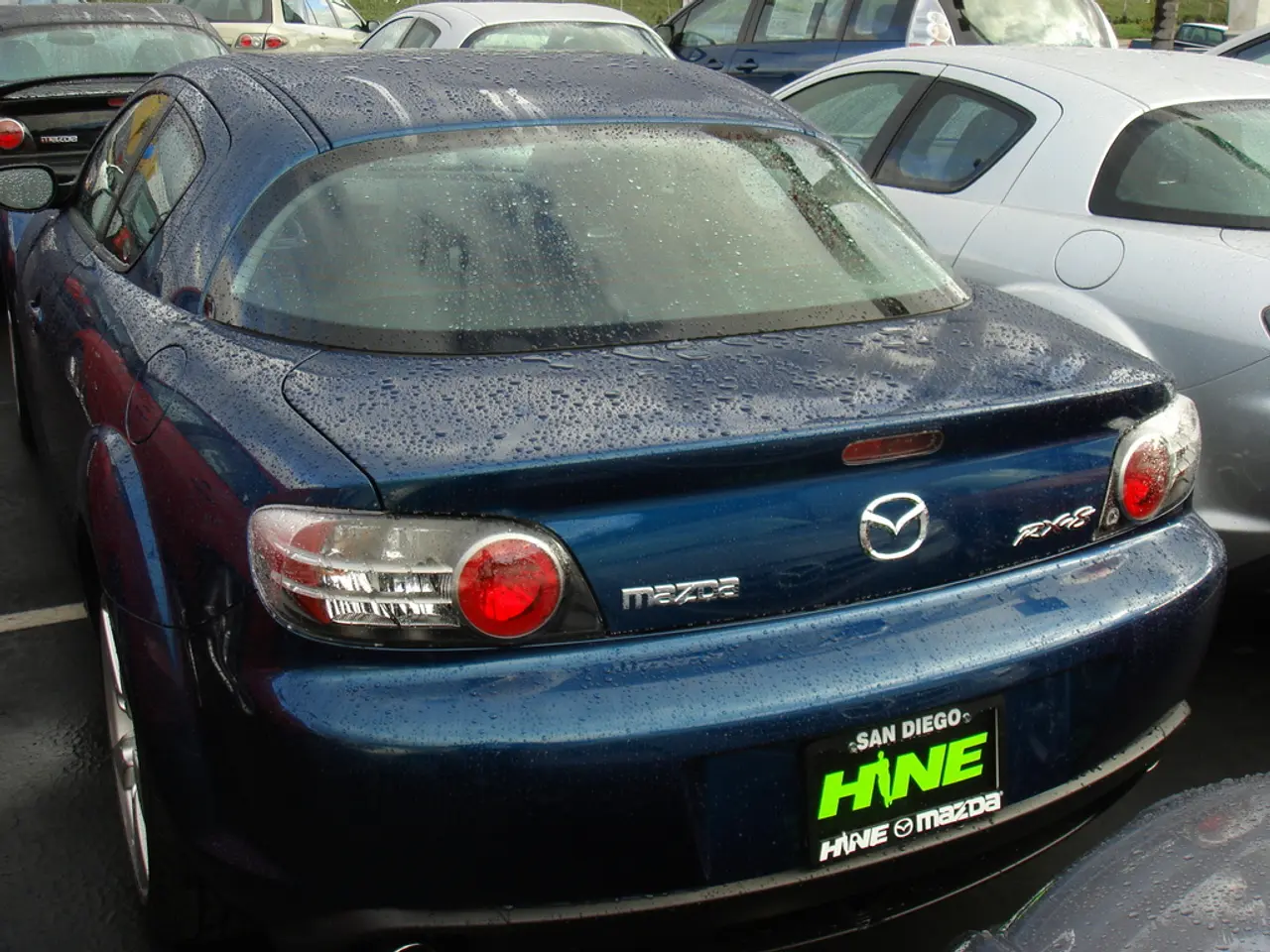Lawmakers face pressure from German automakers to overturn the ban on gasoline and diesel vehicles
Germany's car industry association, the VDA (Verband der Automobilindustrie), is pushing for a more gradual shift in the EU's 2035 ban on the sale of new internal combustion engine (ICE) cars. The VDA's proposal, which could retain the ability to sell some combustion engine vehicles, has reignited debate in the EU about the feasibility and consequences of the ban.
According to Transport & Environment (T&E), the VDA's plans could result in avoidable emissions of 500 to 1,400 million tonnes of CO2 emissions. The VDA argues that fleet limits should be adjusted to keep the development and production of combustion engines, in which Germany is a technological leader, in Europe.
The VDA's draft paper calls for softening interim fleet emission targets and allowing the registration of certain long-range plug-in hybrids after 2035. This approach is seen as a way to protect the German automotive sector’s competitiveness and jobs while navigating the regulatory environment.
However, the SPD has signaled they would resist the adoption of the VDA's position. Tiemo Wölken, a member of the SPD, stated that the proposals would take away any planning and investment security for companies. Environmental think tank Agora Verkehrswende warns that adopting the VDA's draft proposals could lead to a considerable slowdown in the electrification process.
In contrast, other member state governments have expressed a desire to lift the ban, and the European Parliament's centre-right European People's Party (EPP) has also pushed to reverse it. The leader of energy industry lobby group BDEW, Kerstin Andreae, states that Germany's EV charging infrastructure is already well developed and primarily lacks the vehicles to make use of it.
The government's announcement to allow tax write-offs for new company EVs of up to 75 percent of the purchasing price is part of a broader policy package to revive economic growth in the country and to make progress in the sluggish roll-out of electric cars.
Many car industry experts view the battle over the 2035 combustion engine ban as largely symbolic, but warn it could slow the unavoidable shift to electric cars. The ban on the sale of new combustion engine cars from 2035 onwards is EU law and cannot be reversed single-handedly by Germany.
The VDA represents not only Germany's carmaking groups like VW, Mercedes, and BMW, but also many companies from the country's large supplier industry, many of which specialize in combustion engine technology. Leading German automakers like Mercedes-Benz have expressed criticism or reservations about the EU’s ban, indicating industry caution and concern about the transition impact on business.
In their unpublished 10-point plan for climate-neutral mobility, the German car industry demands that emissions from new cars should only be reduced by 90% by 2035, not fall to zero. The VDA proposes that a limited number of new combustion engines can still be registered after 2035, with additional emissions compensated by more ambitious targets for renewable fuels.
Chancellor Friedrich Merz's conservatives had previously called for a reversal of the ban, but it did not make it into the coalition agreement with the Social Democrats (SPD). Despite this, the VDA's advocacy for a more flexible approach to the 2035 ICE ban continues to shape the ongoing debate in the EU.
Technology in sports can benefit from advancements in Germany's combustion engine technology, as the VDA argues that fleet limits should be adjusted to keep the development and production of combustion engines in Europe, which could potentially lead to innovative applications in high-performance vehicles.
However, the electrification process in the automotive sector is facing resistance from the VDA, as they propose a more lenient approach to the EU's 2035 ban on new internal combustion engine cars, which could delay the shift towards electric vehicles in sports and other sectors that rely on high-performance engines.




